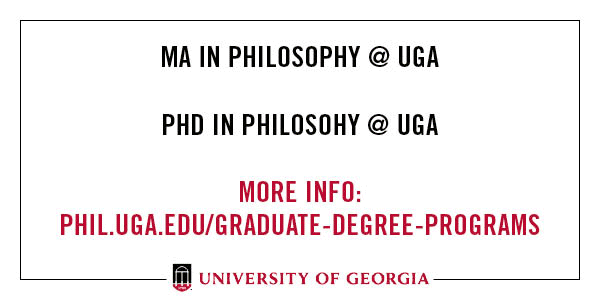Increased Specialization & Competent Peer Review
Is increased specialization in philosophy a problem for high-quality peer review?

[Alexander Calder, untitled]
I have sometimes found highly specialized anthologies excellent. Increasingly, however, I have come across some containing contributions with textual misreadings, self-contradictions, and language so vague as to be in certain spots meaningless. Perhaps high specialization is often at odds with high-quality peer review. Have others found the same?
The question applies to more than just anthologies, though perhaps the editors of anthologies face particular challenges in finding competent reviewers (compared to say, journal editors).
Both increased specialization and competent peer review both tend to be indicators of the quality of a discipline. If we’re in circumstances in which they’re in tension with one another (are we?) what are the possible solutions? And which of those solutions are feasible?
One possible solution is to increase the number of philosophers, so there are more of them competent in highly specialized areas. (“We need more philosophers: the quality of philosophy depends on it!”) But under current circumstances that does not seem to be sufficiently feasible.
Less specialization is an option, but this would not be a desirable development for philosophy, all things considered, in my opinion. (This is not to ignore complaints people sometimes voice about lack of breadth in contemporary philosophy or philosophers. It’s rather that I think broader work can sit happily alongside more specialized work in pluralistically pluralistic discipline like philosophy.)
Your thoughts and suggestions are welcome.
Related: “Should We Get Rid of Peer Review?“, “There Is No One Thing Philosophers Should Be Doing“, “Demographic Diversity is Good for Philosophy“, “2,000 Spaces for 10,000 Papers: Why Everything Gets Rejected & Referees Are Exhausted”



I think we should blame the editors of journals! There are plenty of people working even in specialised areas – and so often editors just ask any old referee in the general field to do the job. If editors just took a bit more time and effort to ask people to referee who are actually working in the specific subfield of the submission, we wouldn’t be having this problem. All it takes is for journal editors to do a bit more Googling around and spend a bit more time!
Two quick responses.
First, I don’t think blame is a particularly helpful way to discuss the issue.
Second, I think it is important to recognize and appreciate how much work journal editors do, and to be thoughtful about requests that ask them to put in even “a bit” more time and effort.
If you can teach me what sort of Google searches will help me find better referees than starting with the bibliography of the paper and people who cite them and then moving on to the recommendations they give when they decline, I’d be glad to learn!
I routinely spend quite literally hours on finding reviewers. It’s just false that there are “plenty of people” who have demonstrated competence in the kinds of topics that come across my desk and who are willing to review.
Just going to agree with Neil and Kenny here. PhilPapers is better than Google for finding potential referees when one doesn’t have a good place to start, but without knowing something about the referee, it is hard to know which of the people working on a topic would be a good referee even when you can find people working on a topic.
Also, the more specialized a paper is, the more you wind up asking people who have reviewed before as well as people who get asked to review in that area of specialization a lot and hence are super busy — often too busy to review.
To me the bigger problem is the increasing pressure, esp. on grad students, to publish. This, combined with very high rejection rates in the more desirable journals, leads to the demand for refereeing dramatically increasing. Even if the level of competence with the topic of a paper were stable, the folks with such competence are only willing to referee so much.
The only reward for being a competent reviewer is being asked to get to do more reviews. There is thus little incentive to do a good job except for professional pride. But that only goes so far…
I’m not sure I understand how high specialization causes a problem for peer review.
Actually, I’m not entirely sure what high specialization means here. Is this more about, say, a paper squarely in the mainstream of analytic epistemology using cutting-edge epistemological tools written for epistemologists, or more about a paper that uses technical tools from philosophy of language to address a meta-ethical claim that is of interest to epistemology? I can see how either of these things might be said to be more or less “specialized” than the other, but they would pose different problems for peer review.
Science has this problem too, and alleviates it by asking authors to suggest referees; as I’ve suggested before, I think we could do the same (probably not as the only referee asked).
What people have said here is sensible and right. Am I wrong in reading the OP as having spoken about anthologies rather than journals? If so, then there is a whole other layer, which is that most, but not all, anthologies are not peer reviewed other than having been reviewed by the editor and the press (OUP, Routledge, etc.) editor, who may seek peer review. This is after having waited for 1-x number of years for the promised submission. Sometimes a paper is rejected at that point (again, by the editor) but rarely, because after having waiting for 1-x number of years, the editor can’t hold the volume back for another year because so-and-so’s paper is not very good. And also, it’s a mess telling so-and-so that their invited paper is not very good. At that point, all you can hope to do, as an editor, is to work with the author to make the paper better, and the author is sometimes quite offended at the suggestion. In short, when it comes to anthologies, they are most often not peer reviewed in the same way that journals are. I don’t know whether this makes a difference when it comes to the specialization issue, but I suspect it may. When one picks up an anthology on, say, “Spontenous Thought,” I think the authors are assuming that the audience is inside baseball